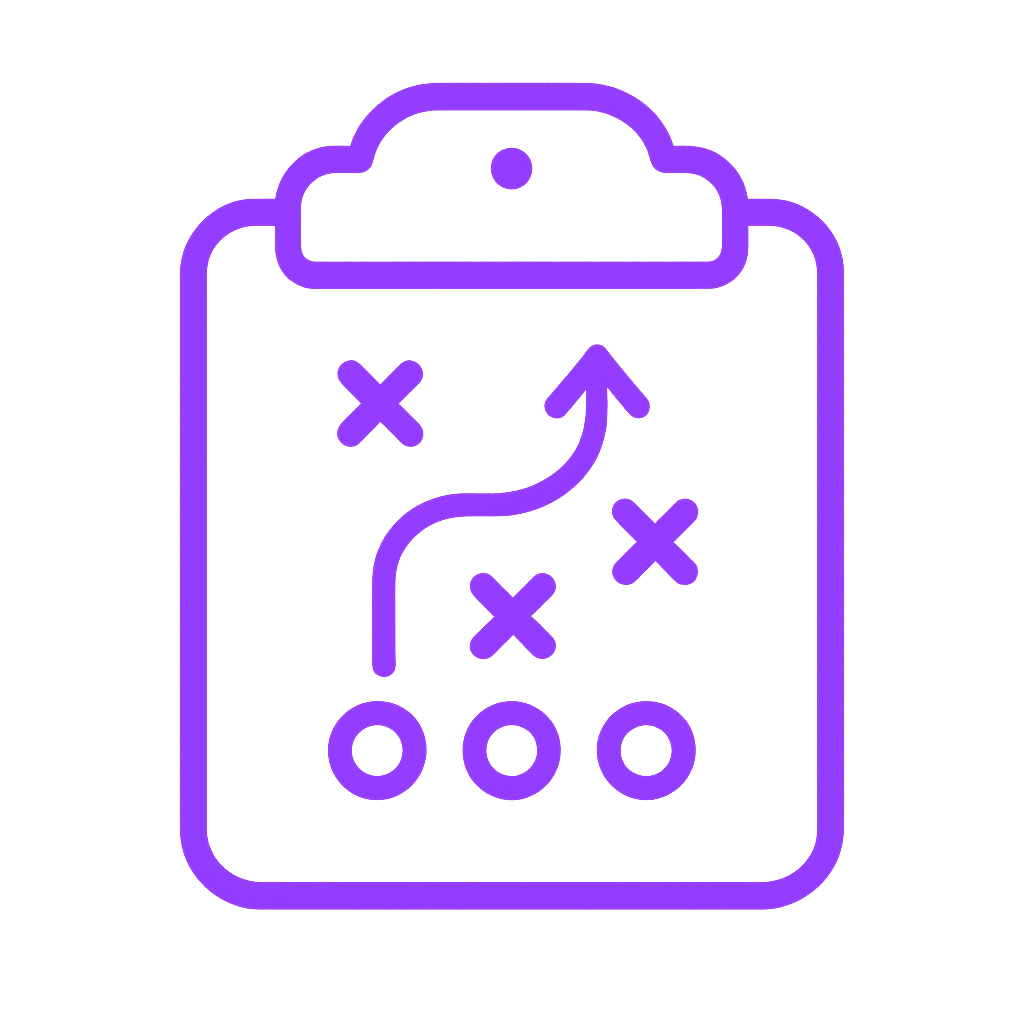AI in Sales: How Data-Driven Insights Increase Revenue

In sales, consistency is everything but for many teams, it’s the hardest thing to achieve. One month you’re on fire, the next you’re chasing cold leads and wondering what changed. The truth? Instinct and experience aren’t enough anymore. If your pipeline feels unpredictable, it’s time to let AI make your next move smarter. Wondering how? Well! Let’s explore it in detail.
Table of Contents
Why Relying on Guesswork Costs You Sales
1. Inconsistent Sales Results

Ever wondered why one month you crush your sales targets, but the next month is a disaster? The problem isn’t effort—it’s inconsistency. Without AI insights, you’re relying on guesswork instead of data-driven decisions. Imagine a sales representative, Alex, who relies on intuition to engage with leads. One month, he closes six deals by chance, but the next month, he barely converts one. Without tracking which tactics worked, he has no way to replicate his success. Implement a data-driven sales strategy. Track your sales activities, analyze conversion rates, and identify patterns. This will help you make informed decisions rather than relying on guesswork.

Without a clear qualification process, you may end up chasing leads that were never a good fit in the first place. Spending time on prospects who are unlikely to buy means you’re missing out on better opportunities. Sarah, a B2B sales executive, spends weeks nurturing a lead that ultimately doesn’t have the budget or authority to make a purchase. Meanwhile, a high-intent lead moves on to a competitor who engages them more efficiently. Develop a lead qualification framework. Use criteria such as budget, need, urgency, and decision-making authority to assess whether a lead is worth pursuing. This ensures that you focus on high-potential prospects.

When you guess your next move, your interactions with prospects can feel disorganized and reactive. Customers want to feel understood and guided through a structured buying journey. If they sense uncertainty, they may lose confidence in your ability to deliver results. John, a sales rep, forgets to follow up with a client after an initial meeting. When he finally reaches out weeks later, the client has already chosen another provider who demonstrated a more structured and attentive approach. Create a structured sales process that includes discovery calls, follow-ups, and clear next steps. This builds trust and makes it easier for prospects to say “yes.”

Sales isn’t just about closing a deal; it’s also about maximizing the value of each customer relationship. When you don’t have a clear sales strategy, you may overlook opportunities to offer complementary products or upgrades that could benefit your customers. A software company sells a basic subscription plan to a customer but fails to suggest an advanced package that fits their needs. Months later, the customer switches to a competitor that offers a more comprehensive solution. Map out a customer journey that includes upsell and cross-sell points. Train your sales team to recognize when and how to introduce additional value to customers.

If you’re relying on gut instincts and ad-hoc tactics, scaling your sales operation becomes nearly impossible. You need a system that allows new salespeople to replicate your success rather than starting from scratch. A startup hires new sales reps, but each one adopts their own approach to closing deals. The company struggles with inconsistent results because there is no standardized sales process in place. Document your sales process. Create training materials, scripts, and playbooks that make it easy for new team members to follow a proven approach. This ensures consistency and scalability.
AI-powered tools can analyze vast amounts of data, identify patterns, and provide actionable insights. Here’s how AI can help sales teams make smarter decisions:

AI uses machine learning algorithms to analyze past interactions, customer behaviors, and demographic data. By recognizing patterns in successful conversions, AI assigns scores to leads based on their likelihood to convert. This ensures sales teams focus their efforts on high-potential prospects rather than spending time on unqualified leads.
AI tools analyze customer engagement data to suggest optimal follow-up times, preferred communication channels, and personalized messaging strategies. For example, AI can detect when a lead is most active online and recommend reaching out at that time, increasing the chances of engagement.
AI-driven CRM systems track customer behavior and preferences, allowing sales teams to deliver highly personalized interactions. AI-powered chatbots can handle initial queries with relevant responses, while CRM integrations can suggest tailored product recommendations based on a prospect’s browsing history and past purchases.
AI-powered automation handles routine sales tasks such as sending follow-up emails, scheduling calls, and updating CRM records. This allows sales reps to focus on high-value interactions rather than administrative work, improving efficiency and productivity.
AI-driven analytics examine historical sales data, market trends, and consumer behavior to predict future sales patterns. This proactive insight helps businesses adjust their sales strategies, allocate resources efficiently, and prepare for market fluctuations before they happen.
Lead Generation and Qualification
AI-driven analytics can help identify high-intent prospects, segment audiences based on behavior, and score leads automatically.
Sales Outreach Optimization
With AI, sales teams can determine the best times to contact leads, personalize communication, and automate follow-ups to improve engagement.
Negotiation and Deal Closing
AI-driven insights allow sales reps to better understand customer needs, tailor their pitches, and provide data-backed responses to objections, increasing deal closure rates.
Post-Sale Engagement
Instantly flag unusual spikes or dips like a sudden drop in customer engagement, so you can act fast.

At ImpelHub, we understand that growth isn’t just about taking action; it’s about taking the right action. That’s why our platform is built around providing you with the data and insights you need to navigate the complexities of your market.
Every successful growth strategy starts with a solid understanding of where you are now. That’s where Insight 360 comes in. This module is designed to give you a comprehensive view of your business and the industry you operate in.
At its heart, Insight 360 is about empowering you to move beyond “gut feelings” and make decisions rooted in data. Here’s what it provides:
In-depth Business Analysis
We take a close look at your internal data – your sales figures, customer behavior, marketing performance, and more. This helps you identify your strengths, weaknesses, and areas for improvement.
Industry Insights
It's not enough to know your own business; you also need to understand the broader market. Insight 360 provides valuable data on industry trends, market size, growth forecasts, and other key factors that can impact your strategy.
Why is Insight 360 Important?
Think of Insight 360 as the foundation upon which you build your growth strategy. Without this solid base of knowledge, you’re essentially building on sand. With it, you can:
Identify Opportunities
Spot untapped markets, emerging trends, and potential areas for expansion.
Mitigate Risks
Anticipate challenges, understand competitive threats, and make proactive adjustments.
Optimize Operations
Improve efficiency, allocate resources effectively, and maximize your ROI.
Taking It Further: Insight 360+
For businesses that want to take their strategic analysis to the next level, we offer Insight 360+. This optional module expands on the capabilities of Insight 360, providing even deeper insights and guidance.
What Does Insight 360+ Offer?
Deeper Industry Dive
Insight 360+ provides a more granular view of your industry, including detailed segment analysis, emerging sub-trends, and in-depth competitive landscapes.
Benchmarking
One of the most powerful features of Insight 360+ is benchmarking. See how your business stacks up against industry leaders and competitors. Identify areas where you're excelling and areas where you need to catch up.
Strategic Guidance
Insight 360+ goes beyond simply presenting data; it also offers strategic recommendations and guidance to help you refine your growth plans and make the best possible decisions.
In-depth Understanding of Your Customers
You can’t sell smarter if you don’t truly understand who you’re selling to. That’s why ImpelHub puts customer intelligence at the center of your sales strategy. With tools like FansScope and Segment, you’ll go far beyond basic demographics and actually get into the mindset of your buyers.
FansScope
helps you identify every potential customer type—both direct and indirect. It dives deep into their motivations, pain points, behaviors, and buying journeys. You’ll get the full picture of who they are, what they care about, and how they make decisions.
Segment
builds out detailed profiles for your ideal customers, including buyer personas, ICPs (Ideal Customer Profiles), and firmographics for B2B businesses. It helps you break down your market into smart, targeted segments so you can speak to the right people with the right message.
Here’s how that helps your business
You market smarter
When you know exactly what your customers care about, your messaging becomes more relevant and persuasive.
You close faster
By aligning your pitch to the specific pain points and decision-making style of each segment, you reduce friction and build trust.
You focus your resources
Stop wasting time chasing the wrong leads. Segment helps you prioritize the customers most likely to convert.
You improve retention
Understanding what your customers value helps you serve them better—and keep them coming back.
Check out our blog on ICP Grading and discover how to rank, score, and win the right customers faster.
Deep Understanding of Your Competitors

To stand out in a crowded market, you need more than just a good product—you need to know exactly what your competitors are doing and how to outplay them. That’s where ImpelHub’s competitive intelligence tools, FoesScope and CounterEdge, give you a serious edge.
FoesScope
Digs deep into how your competitors are moving—whether they’re small startups or established giants. It analyzes their growth strategies, market positioning, messaging, and tactics across different revenue tiers. You’ll see not just who they are, but how they’re trying to win.
CounterEdge
Takes those insights and brings them home. It shows how those competitive moves affect your business, and more importantly, what you can do about it. You’ll identify where rivals are strong, where they’re vulnerable, and where your business has room to dominate.
Battleboard™
Once you understand how your competitors operate, it’s time to turn insight into action. ImpelHub helps you assess the business impact of competitor strategies and then arms you with clear opportunities to differentiate, outperform, and grow.
Through AI-driven analysis, we identify where your competitors are strong, where they’re vulnerable, and where your business has the chance to stand out. Then we bring it all together in a tactical format your sales and marketing teams can use immediately: the Battleboard™.
The Battleboard™ is your strategic cheat sheet. It translates competitive insights into easy-to-digest advantages, highlighting where you win, where you need to improve, and how to position yourself in key deal conversations.
With ImpelHub’s competitive insights and Battleboard™, you’re not just reacting to the market, you’re setting the pace.
Here’s how that helps your business:
You build a smarter strategy
Know what your competitors are planning so you can stay a step ahead—not a step behind.
You find your edge
Spot gaps in the market and refine your value proposition to stand out.
You reduce risk
Understand threats early and adapt your strategy before they impact revenue.
You win more deals
With competitive intel baked into your pitch, you can show prospects exactly why you’re the better choice.
Unlock Actionable Results

Once your Business Brain is in place and you’ve gained a clear understanding of your competitors and customers, ImpelHub’s advanced modules help you transform those insights into clear, actionable plans designed to drive growth. Here’s how:
NextMove
Based on data-driven insights, NextMove generates growth strategies that are aligned with your business’s strengths and opportunities. These strategies are ranked by their effectiveness and feasibility, helping you prioritize actions that will have the most significant impact.
Launch
With Launch, strategies become fully actionable marketing plans. It provides detailed weekly task lists, making implementation straightforward. This tool helps you track progress, stay on schedule, and adjust when necessary to ensure your growth objectives are met.
UxI: UxI
Goes a step further by conducting comprehensive UI/UX audits. It identifies key areas for improvement within your user interface and experience, ensuring your platform or service enhances customer satisfaction and retention.
Feature Gap
Finally, Feature Gap helps identify missing features or opportunities within your product or service offerings. These gaps are ranked based on their potential to impact revenue, customer satisfaction, churn reduction, and cost optimization, guiding your team in delivering a competitive edge.
What Next?
Relying on guesswork in sales is a costly mistake. The key to consistent success lies in leveraging AI-powered tools that provide data-driven insights, streamline workflows, and enhance customer engagement. With solutions like Impelhub, businesses can transition from uncertainty to a strategic, scalable, and results-driven sales approach.
Gigi J.K
For years, all of us working in the digital world, including digital marketers, have followed the mantra that “Content is King,” shaping our strategies and approaches. Let me tell you, content was more than just a buzzword — it was the backbone of marketing strategies. It drove engagement, built trust, and helped brands connect with their audiences. However, an undeniable shift is happening as AI starts playing a more significant role in how businesses operate.



